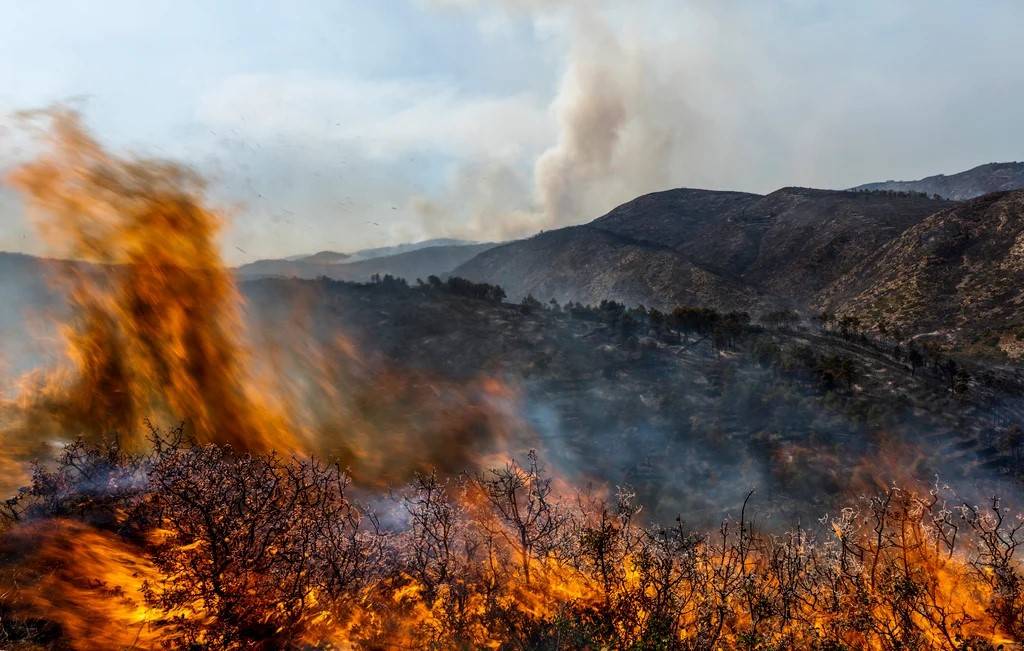
An exceptionally dry winter in parts of Europe's south has reduced soil moisture, raising fears of a repetition of 2022, when 785,000 hectares were lost in Europe - more than double the yearly average over the previous 16 years, according to European Commission (EC) statistics.
"These flames we're experiencing, especially this early in the year, are once again confirmation of humanity's climate emergency, which especially affects and ravages countries like ours," Spanish Prime Minister Pedro Sanchez said during a news conference in Brussels.
According to the European Commission's European Forest Fire Information System, 493 fires destroyed a record 307,000 hectares of land in Spain last year. Firefighters used 18 planes and helicopters to fight the blaze near Villanueva de Viver, in the Valencia region, throughout the night and on Friday.
According to Gabriela Bravo, the regional head of interior affairs, emergency services evacuated eight settlements. While firefighters thought they had the flames under control, Bravo warned that high winds and "practically midsummer temperatures" may revive them. After three years of below-average rainfall, Spain is enduring a long-term drought.
The weather along Spain's northeastern Mediterranean coast will be drier and hotter than usual this spring, raising the risk of wildfires, meteorological service AEMET said last week. This month's European Commission report noted a lack of rain and higher-than-normal temperatures during the winter, prompting drought warnings for southern Spain, France, Ireland, the United Kingdom, northern Italy, Greece, and portions of eastern Europe.
"There is every cause to fear that there will be numerous and broad catastrophes this year as well," said Lorenzo Ciccarese, a researcher at Rome's Superior Institute for Environmental Protection and Research (ISPRA). According to the Commission report, low water levels could have an impact on vital industries like as agriculture, hydropower, and energy generation.
According to official predictions, olive oil production in the European Union would decline by half compared to the previous season in 2022-23, owing mostly to a drop in output from Spain induced by the drought. Production has also been hampered by dry weather in Portugal and Italy.
















